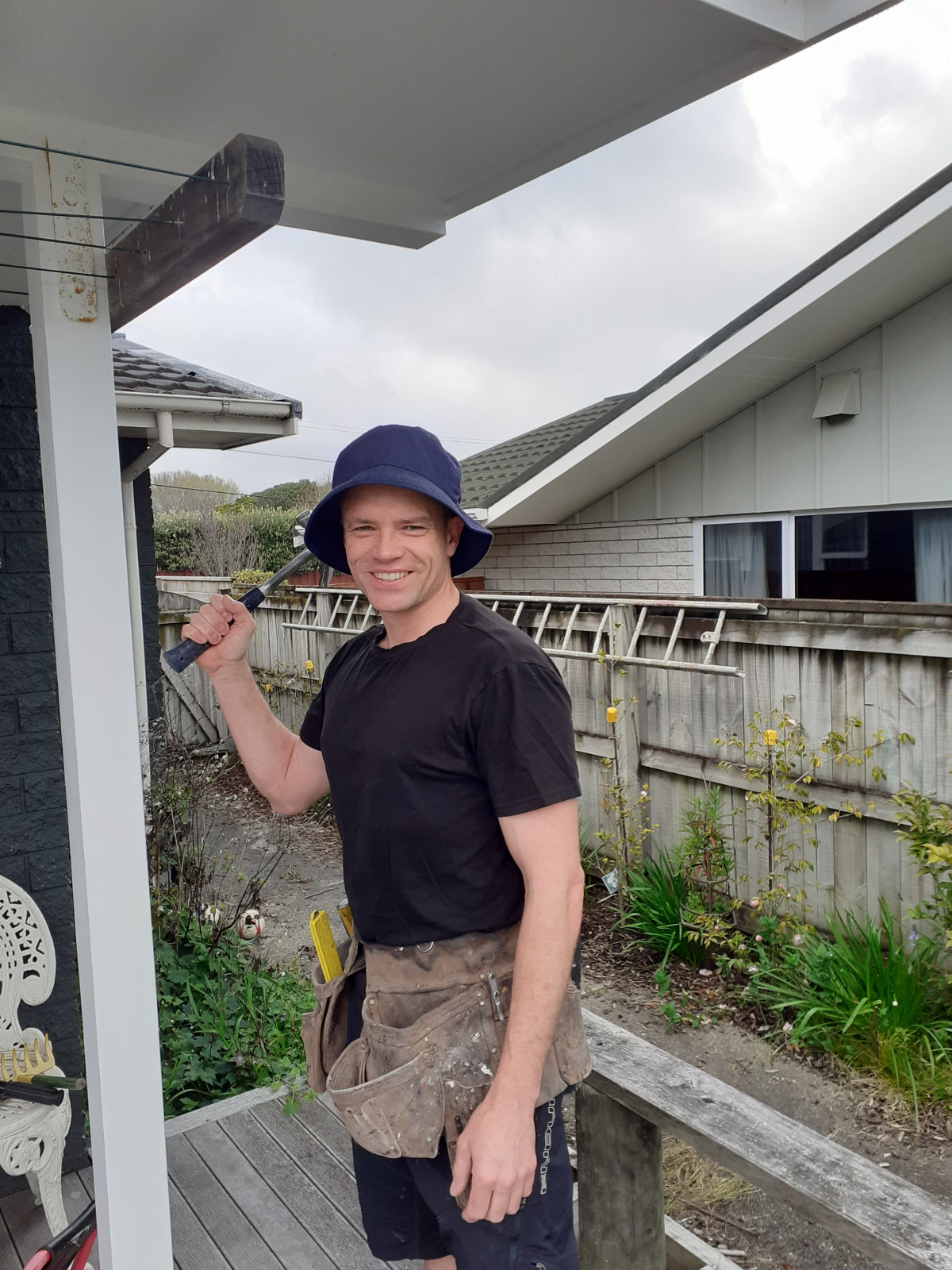When it comes to safety on the job site, there are many hazards to be aware of, but harmful UV rays, while not immediately obvious, are one of the biggest risks for outdoor workers.
People who work outside receive up to 10 times more ultraviolet (UV) radiation exposure than indoor workers, putting them at high risk of developing skin cancer.
Cancer Society Medical Director Dr Kate Gregory says: “Skin cancer is the most common cancer in Aotearoa New Zealand. Unfortunately, many outdoor workers in New Zealand are not provided adequate shade or are not wearing adequate sun protection equipment even though these actions can make a real difference in reducing the risk of skin cancers.”
Waikanae-based builder and joiner Phil Morgan, 41 (Te Whānau-ā-Apanui), says: “I think about skin cancer regularly.” After years in the building industry, Phil established his company Morgancraft Construction Limited in 2018. Now he is a sole trader and a solo Dad of 4 young children. For Phil, as a single parent, looking after his health means looking after his whānau.
“Protecting my skin means protecting my livelihood and my family”.
Establishing his own company led to looking into his entitlements as a business owner and understanding what business purchases are tax-deductible.
“As I’m self-employed, it’s good to know that sun protection items are tax-deductible for outdoor workers.”
Phil has had skin checks in the past but hasn’t attended one for a while. He’s now conscious of the need to check his skin monthly and go to his GP if there are new spots or changes in the shape, colour or size of any existing spots or moles. “I really need to book in for a skin check.”
Dr Kate Gregory says: “Most skin cancers can be treated successfully if caught early. It is so important for everyone, particularly those spending large amounts of time outdoors to regularly check their skin. And remember that you cannot see or feel UV radiation – it can be harmful even on a cool or cloudy day. Because UV damage accumulates over time, we recommend that outdoor workers use sun protection year-round. Be particularly careful from September to April between the hours of 10am-4pm when UV levels are high.”
ENDS
Background Information
Employers have a duty of care to not put workers at risk from UV radiation under the Health and Safety at Work Act (HSWA) 2015. If UV radiation is identified as a potential hazard, employers must take steps to eliminate and minimise the risk, as far as is reasonably practicable.
Here are some ways to reduce your workers’ exposure to UV radiation, as well as heat exhaustion:
Limit time working outside
If possible, move tasks inside or adjust work times to when UV radiation levels are lower, such as early morning or late afternoon. You can check UV levels through this app - https://niwa.co.nz/our-services/online-services/uv-ozone/uvi-smartphone-apps
Provide shade
Allow workers to do tasks under trees or other shaded areas, or put up temporary shade structures like an outdoor gazebo. Remind staff to take breaks in shade whenever possible. This is one of the most effective ways to reduce overall UVR exposure.
Provide SunSmart personal protective equipment
Depending on the requirements of your industry, sun-protective clothing could include:
- a long-sleeved, collared shirt, ideally in a tight-weaved, dark fabric
- a wide-brimmed hat or helmet with a peak and neck guard (legionnaire’s flap)
- close-fitting, wrap-around sunglasses that meet safety and sun protection standards (check the label).
Provide sunscreen
Ensure easy access to a water-resistant, broad-spectrum sunscreen of at least SPF30+. Ensure sunscreen is within its expiry date and not stored anywhere too hot, like a car glovebox. Provide a cooler bag with an icepack for transport in cars.
Remind employees to be SunSmart
Regularly talk to your employees about being safe when working outdoors, including the application and re-application of sunscreen.
Encourage skin checks for early detection of skin cancers
Workers find it hard to take time off, so be a proactive boss and talk to staff about how to make it work for you and your employees to get their skin checked by a doctor. Encourage your employees to undertake regular self-checks by talking about it and providing information.
A sample sun protection policy for your workplace is available here.

